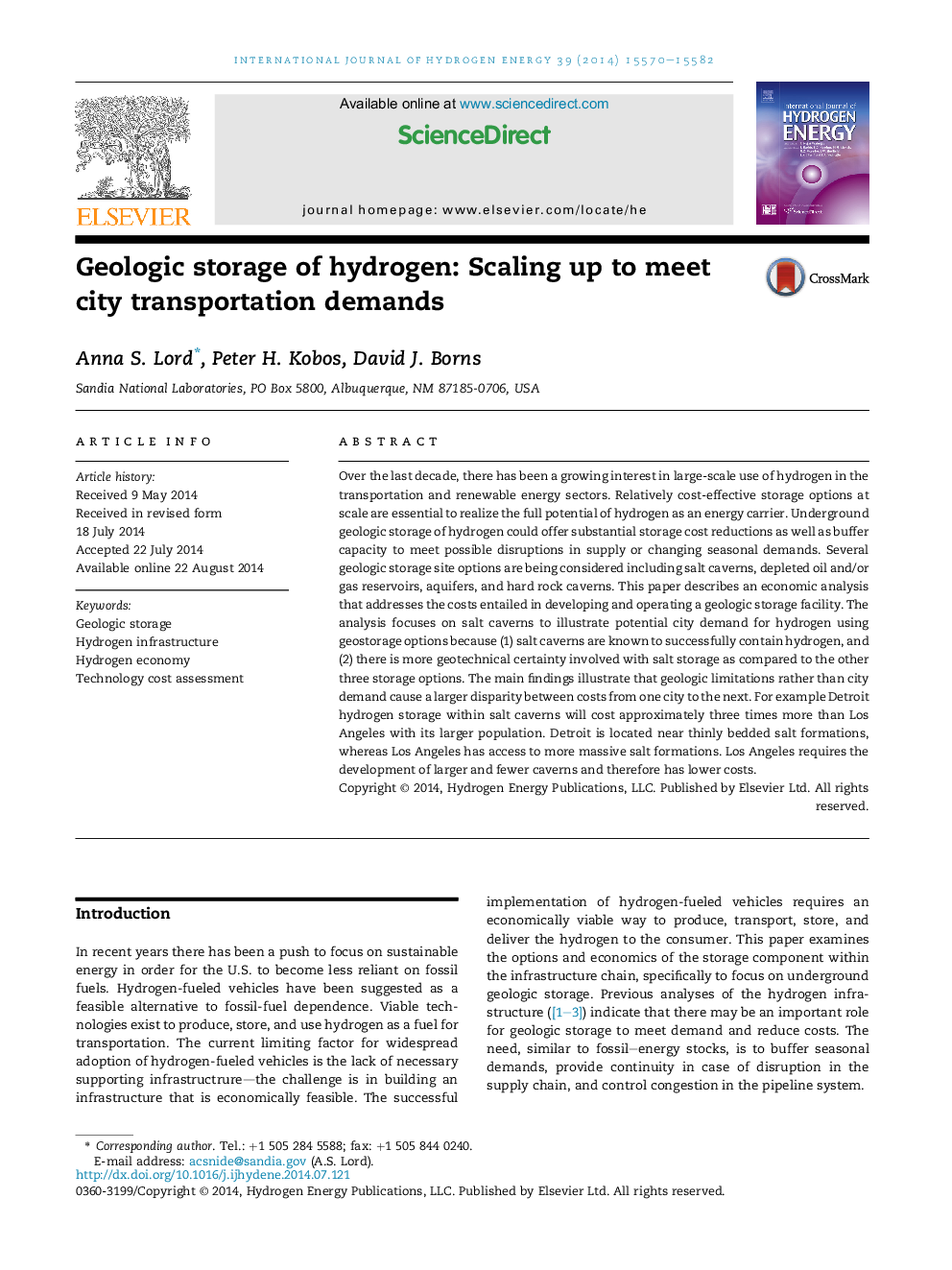| Article ID | Journal | Published Year | Pages | File Type |
|---|---|---|---|---|
| 1272394 | International Journal of Hydrogen Energy | 2014 | 13 Pages |
•Geologic storage of H2 offers cost-effective storage as well as buffer capacity.•The costs in developing and operating a geologic storage facility were analyzed.•The analysis focused on salt cavern costs for the city-specific H2-vehicle demand.•Geologic limitations rather than city demand cause a larger variance between costs.
Over the last decade, there has been a growing interest in large-scale use of hydrogen in the transportation and renewable energy sectors. Relatively cost-effective storage options at scale are essential to realize the full potential of hydrogen as an energy carrier. Underground geologic storage of hydrogen could offer substantial storage cost reductions as well as buffer capacity to meet possible disruptions in supply or changing seasonal demands. Several geologic storage site options are being considered including salt caverns, depleted oil and/or gas reservoirs, aquifers, and hard rock caverns. This paper describes an economic analysis that addresses the costs entailed in developing and operating a geologic storage facility. The analysis focuses on salt caverns to illustrate potential city demand for hydrogen using geostorage options because (1) salt caverns are known to successfully contain hydrogen, and (2) there is more geotechnical certainty involved with salt storage as compared to the other three storage options. The main findings illustrate that geologic limitations rather than city demand cause a larger disparity between costs from one city to the next. For example Detroit hydrogen storage within salt caverns will cost approximately three times more than Los Angeles with its larger population. Detroit is located near thinly bedded salt formations, whereas Los Angeles has access to more massive salt formations. Los Angeles requires the development of larger and fewer caverns and therefore has lower costs.
